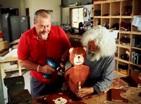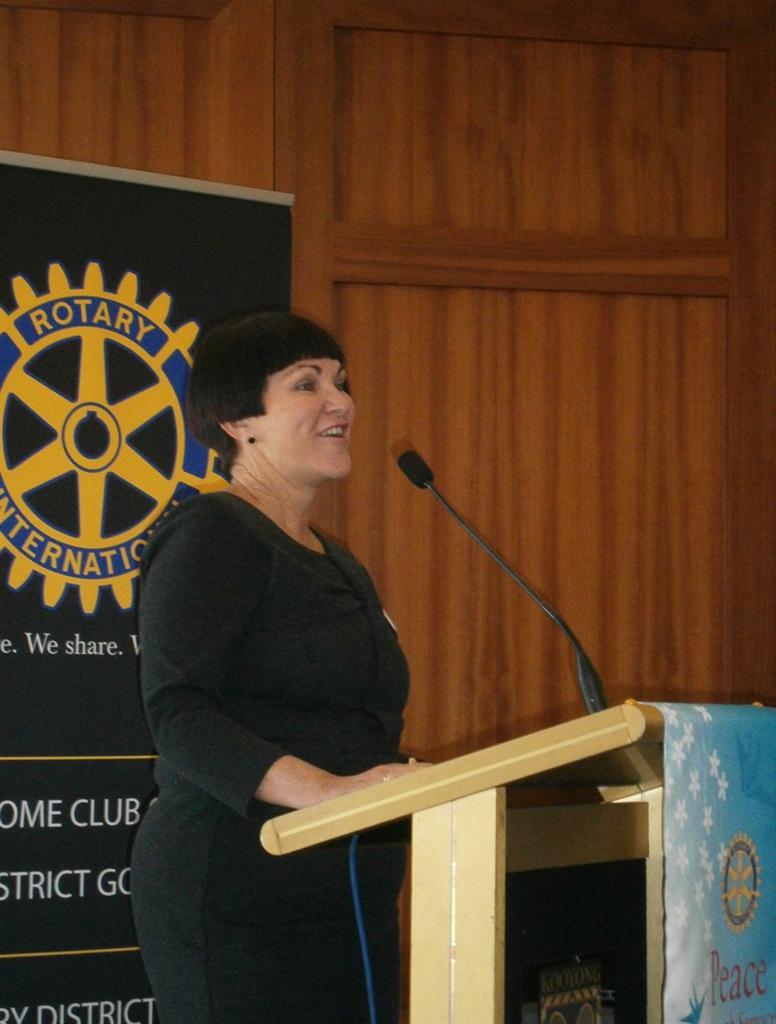Men's Sheds - a Special Community
 |
The Men’s Sheds concept is flourishing world-wide and has an underlying driver to promote health, and well-being in men mostly who are retired. Dr Jillian Cavanagh reminded us of the social phenomena whereby men are less prone than women to develop informal support networks of fellows by which to discuss problems. The Men’ Shed approach negates that. |
Dr Jillian Cavanagh is currently a Rotarian at the Melbourne Sunrise Club and a La Trobe University academic with special interests and qualifications in Management.
Jillian told of her long term focus on research and how a chance meeting with a fellow airline passenger lead her to undertake her present research work on Men’s Sheds.
We learned that the Men’s Sheds concept is flourishing world-wide and has an underlying driver to promote health, and well-being in men mostly who are retired. She reminded us of the social phenomena whereby men are less prone than women to develop informal support networks of fellows by which to discuss problems. The Men’ Shed approach negates that.
Even in Australia there are several formal and informal manifestations and groups which use the term or the concept. There are about 800 like “sheds” and over 100,000 members. The term evolved from the past Australian culture/practice mostly in rural areas where the backyard tin shed was the centre of hands on activity and diversion for the man. In reality the current phrase seeks to denote a place where there are gatherings on men assisting each other in common manual tasks.
With three examples Jillian demonstrated the range of sheds.
First there was the exemplar shed from Queensland. This was characterised by well-established and efficient management systems (for example name tags with skill designations, Health and Safety rules in place, no fees, login procedures) and a strong attendance of men constructing products in a well-equipped workshop. One could see in this example how there was often a link with Rotary whereby the product output of the shed would feed into the objective of some Rotary project
Then there was an indigenous group with its prime story-telling feature centred on a “yarning circle” in a garden which the men had constructed. There were no systems, no health/safety rules and limited resources but nevertheless was still an effective forum to progress the men’s health and well-being.
A third example was a unit in a rural town having a fully outfitted old large factory but with very few members and the inherent problems and discouragement arising from singular autocratic leadership.
 Jillian’s research aims to see how the management of Men's Sheds impacted on the achievement of the overall goals for the participants, namely opening up communications, identifying health issues and then accessing health services. She has a grant from the Federal Government to examine indigenous units, and another grant to investigate the role and value of umbrella associations.
Jillian’s research aims to see how the management of Men's Sheds impacted on the achievement of the overall goals for the participants, namely opening up communications, identifying health issues and then accessing health services. She has a grant from the Federal Government to examine indigenous units, and another grant to investigate the role and value of umbrella associations.
In response to questions Jillian explained that there was no one formal funding for these sheds but varied sources. Nor was there a consistent legal structure which satisfied obligations under health and safety law or limited public liability cover. She saw her research into among others these points as all part of answering the question of how the management structure impacted on participation and hence the health/well-being of men.
The Boroondara Rotary Cluster (under the leadership of Glenferrie RC) is promoting a local Men’s Shed.